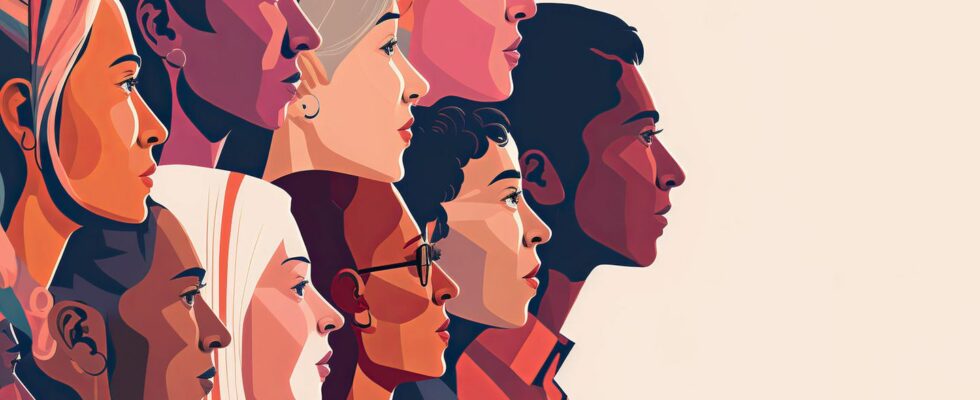Racist statements are part of everyday life for many people. Some are incidental, others are specifically aimed at a person. But how can we ensure that racism does not take place in our presence? We have collected some examples for you.
In some situations, racist comments are excused because of older age – or you convince yourself that your own opinion won’t help anyway. In such situations, supporters often feel unable to stand up. But for the many people for whom racist comments are part of everyday life at work, at school, at university or in other situations, our voice is also important.
Racist behavior occurs when people discriminate against, condemn, mock, exclude or attack others because of their appearance, origin, lifestyle or culture. This is often linked to right-wing extremist views. Racism divides our society. It separates the ideological “us” and “the others”. But what can we do? Providing resistance against racism. What we have to learn is to show courage in such moments, to educate and to clear up prejudices.
What helps you against racist statements
Our first instinct when we hear a discriminatory statement is to say that it is wrong. The fact that it’s not true is nonsense. In some cases, this may stop a person in their tracks. However, such an argument is often ignored. It can therefore make sense to disarm a statement with targeted counter questions and then counter it with facts. The Diversity Charter e. V. gives an overview of this “Anti-racist awareness raising” helpful tips. With examples that show racism in everyday life and approaches that can also be helpful with other statements.
Example 1: “It is clear that the task is not finished yet, in their culture they are simply not as hard-working as we Germans”
What you can do: Ask!
Who do you mean? Who do you mean by “them”? What evidence or sources do you have for this? What makes you think that? Which culture do you mean?
The very act of asking often causes the person to falter in what they say. Because such behavior is often not addressed and the person was able to express themselves without consideration. We shouldn’t leave it at that.
Invalidate: How to
So you think this wouldn’t happen with a German colleague? I had different experiences there. I would say how fast someone works doesn’t depend on their cultural background.
How discrimination occurs here:
This kind of racism involves the idea that characteristics are linked to origin, nationality or external appearance – here “diligence” is attributed to “being German”, while the other is a generalized representation of the opposite. Similar prejudices could, for example, relate to punctuality or a lack of seriousness.
Example 2: “This whole racism discussion is really too much. It’s not that bad here in Germany.”
Ask:
Please explain to me what is too much about it? What bothers you about that? Do you experience racism in your everyday life? How do you then want to be able to judge that things aren’t that bad in Germany?
Invalidate:
Put yourself in the shoes of a person with a migrant background: Finding an apartment can be difficult because your last name is different – for this reason alone, people are sometimes not invited or rejected, and perhaps there is also a language barrier. Some are accused of only getting the job because of a quota in a company. On the street you are constantly asked where you come from or told that you “speak German well”. Some people have their hair touched without asking because, for example, they have an Afro and so on.
How discrimination occurs here:
This kind of racism involves a privileged attitude. The person probably has Never have to experience exclusion because of their origins or appearance, but believes he can form an opinion. She is unaware of her position in society. Such a statement is often accompanied by the fact that people who have experienced racism should be “satisfied” with what has already been achieved. But structural racism in particular is often hidden.
Example 3: “Of course she can dance, rhythm is in her blood”
Some things are just said or disguised as compliments. They are words that imply that the person is different from oneself or in a figurative sense: the Germans.
Questions and refutations:
So you think all people from… can dance well? I come from… and can also dance well. In my experience, people learn to move rather than be born with it.
How discrimination occurs here:
This kind of racism is often structural conditional. “We live in these structures and take on actions or statements that can be racist, even if it is not intended,” writes Charter of Diversity eV. Some people have internalized these views for generations. But that doesn’t make them okay.
Sources used: charta-der-wandel.de, political-bildung-brandenburg.de, amnesty.de
